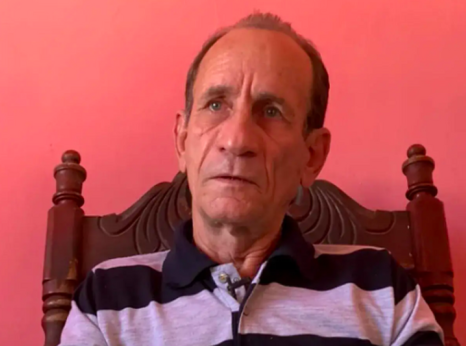Cuba: Teacher In Need Of Medical Care

Cubans of all ages and walks of life have been charged, put on trial, or given harsh sentences for peacefully participating in protests in July 2021 in proceedings mostly held behind closed doors and often failing to respect fair trial rights.
Among those imprisoned is Pedro Albert Sánchez, a retired teacher from Cuba, who has been a vocal critic of the Cuban government and a staunch advocate for human rights, particularly focusing on freedom of expression and peaceful assembly.
Pedro has been detained multiple times since 2020 simply for participating in peaceful protests and expressing dissenting views.
Pedro Albert Sánchez was sentenced in October 2022 to five years of "limited freedom", which means that he could spend his sentenced outside of jail, for charges of "contempt" and "public disorder" under the Cuban Penal Code. These charges stemmed from his participation in the peaceful protests of 11 July 2021, where he exercised his right to peaceful assembly and his right to freedom of expression by criticizing the government and calling for political reforms.
On 22 November 2023, he was detained by Cuban authorities after attempting to deliver a letter to Eamon Gilmore, the European Union (EU) Special Representative for Human Rights, who was in the country to co-chair the fourth Human Rights Dialogue under the EU-Cuba Political Dialogue and Cooperation Agreement (PDCA). In December 2023, a court overturned his "limited freedom" sentence and ordered him to serve his sentence in prison, despite the absence of any violent actions or incitement at the time of his detention.
Based on the information available to Amnesty International, he should never have been charged with these offences. The organization notes that “contempt” and “public disorder” are charges frequently used in Cuba to target those exercising their rights to freedom of expression and peaceful assembly.
Amnesty International considers Pedro Albert Sánchez to be a prisoner of conscience and calls for his immediate and unconditional release. His imprisonment not only violates his human rights but also highlights the broader repression faced by people who call on the Cuban authorities to fulfil their human rights obligations. Immediate action is required to secure his release and ensure that he urgently receives access to adequate healthcare for his critical conditions.
Amnesty International’s Prisoner of Conscience determination is based on the information available to Amnesty International regarding the circumstances leading to the person’s detention. In naming a person as a Prisoner of Conscience, Amnesty International is affirming that this person must be immediately and unconditionally released but is not endorsing past or present views or conduct by them.